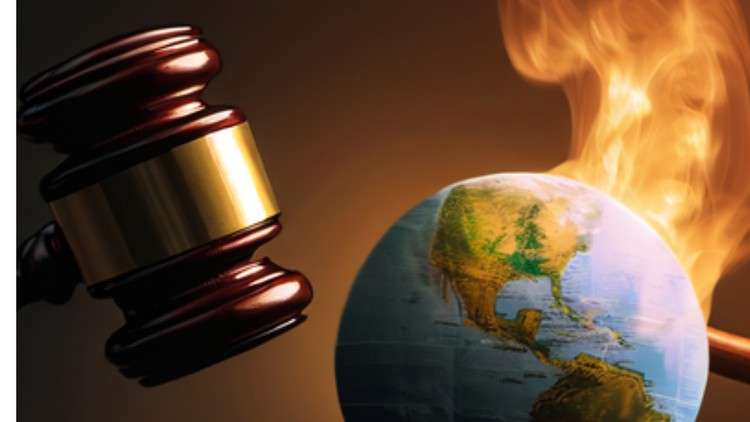
Understanding International Legal Regimes in combating Global Warming & Climate Change
What you will learn
The learners will acquire skills on:
Green House Gas Emissions
The Phenomenon of Global Warming and other Environmental Stimuli for Global Warming
Traditional legal tools under law of tort to address Global Warming and Climate Change issues
International Legal Treaties on Emissions and Climate Change
Making Clean Energy Choices
Differential Treatment of Differentially abled
Description
Welcome to the comprehensive online course on “Global Warming & Climate Change: Understanding Legal Regimes.” This course is designed to provide you with a deep understanding of the legal frameworks and regulations that address global warming, climate change, and environmental protection. Whether you are an aspirant of civil services exams, a professional in environmental and energy studies, a lawyer, or simply a concerned citizen, this course will equip you with the necessary skills and knowledge to comprehend and contribute to the legal response to global warming.
Course Overview:
Green House Gas Emissions: In this section, you will explore the concept of greenhouse gas emissions, their sources, and their impact on global warming. We will delve into the scientific understanding behind these emissions and how they contribute to climate change.
The Phenomenon of Global Warming and Other Environmental Stimuli: Deepen your understanding of global warming. We will examine various environmental stimuli that contribute to global warming, such as deforestation and industrialization. Through engaging lectures and case studies, you will gain a comprehensive understanding of the causes and consequences of global warming.
Traditional Legal Tools under the Law of Tort: In this section, we will explore how traditional legal tools under the law of tort can be employed to address global warming and climate change issues. You will learn about principles such as negligence, nuisance, and strict liability and how they can be applied in environmental cases to hold individuals, corporations, and governments accountable for their actions that contribute to climate change.
International Legal Treaties on Emissions and Climate Change: This section will focus on the international legal treaties and agreements that govern emissions and climate change. We will study significant instruments like the United Nations Framework Convention on Climate Change (UNFCCC), the Kyoto Protocol, and the Paris Agreement. You will gain insights into the negotiation processes, compliance mechanisms, and enforcement of these treaties.
Making Clean Energy Choices: Transitioning to clean energy sources is crucial in responding to global warming. In this section, we will explore renewable energy technologies, energy efficiency measures, and policies that promote sustainable practices. You will learn how individuals, businesses, and governments can make informed decisions to reduce their carbon footprint and contribute to a greener future.
Differential Treatment of Differentially Abled: In this section, we will discuss the concept of differential treatment in the context of global warming and climate change. We will explore how legal regimes can ensure equitable access to resources, adaptation measures, and disaster response for individuals with disabilities. You will gain a deeper understanding of the importance of inclusivity and social justice in climate change policies.
Course Audience:
This course is specifically designed for:
- Aspirants of Civil Services Exams, Judicial Recruitment, UGC NET Exam: If you are preparing for competitive exams that test your knowledge of legal and environmental issues, this course will provide you with a strong foundation to enhance your understanding and boost your exam performance.
- Environmental, Energy, and Policy Studies Professionals: If you are already working or planning to work in the field of environmental, energy, or policy studies, this course will equip you with specialized knowledge on legal regimes related to global warming and climate change. It will enhance your expertise and enable you to make informed decisions and contribute effectively to the development and implementation of sustainable policies.
- Lawyers, Researchers on Global Warming and Climate Change: If you are a legal professional or a researcher with a keen interest in global warming and climate change, this course will provide you with a comprehensive understanding of the legal frameworks and regulations. You will gain valuable insights into the application of traditional legal tools and international treaties, allowing you to make meaningful contributions to the field.
- Citizens with a Passion for the Protection of the Environment: If you are a concerned citizen who is passionate about protecting the environment and combating climate change, this course is ideal for you. It will empower you with the knowledge and skills to advocate for sustainable practices. You will learn about your rights, responsibilities, and avenues for action, enabling you to actively participate in environmental protection initiatives.
Course Benefits:
By enrolling in this course, you will:
- Gain a solid understanding of greenhouse gas emissions, global warming, and environmental stimuli.
- Explore the application of traditional legal tools under the law of tort to address global warming and climate change issues.
- Develop insights into international legal treaties on emissions and climate change, including their negotiation processes and compliance mechanisms.
- Learn about clean energy choices and how they contribute to mitigating climate change.
- Understand the importance of differential treatment for individuals with varying abilities in the context of climate change.
- Acquire practical knowledge and skills to make informed decisions, engage in policy discussions, and contribute to environmental protection efforts.
Course Format:
- Engaging video lectures of 15 mins each in 4 modules.
- Real-life case studies and examples to illustrate key concepts.
- Quizzes to reinforce learning.
- Supplementary reading materials for deeper exploration of specific topics.
- Lifetime access to course materials, allowing you to revisit the content and stay updated with the latest developments.
Enroll in “Global Warming & Climate Change: Understanding Legal Regimes” today and embark on a transformative learning journey. Equip yourself with the knowledge and skills needed to address the urgent challenges posed by global warming and contribute to a sustainable and resilient future. Together, let’s make a positive impact on the environment and safeguard our planet for generations to come.
Content